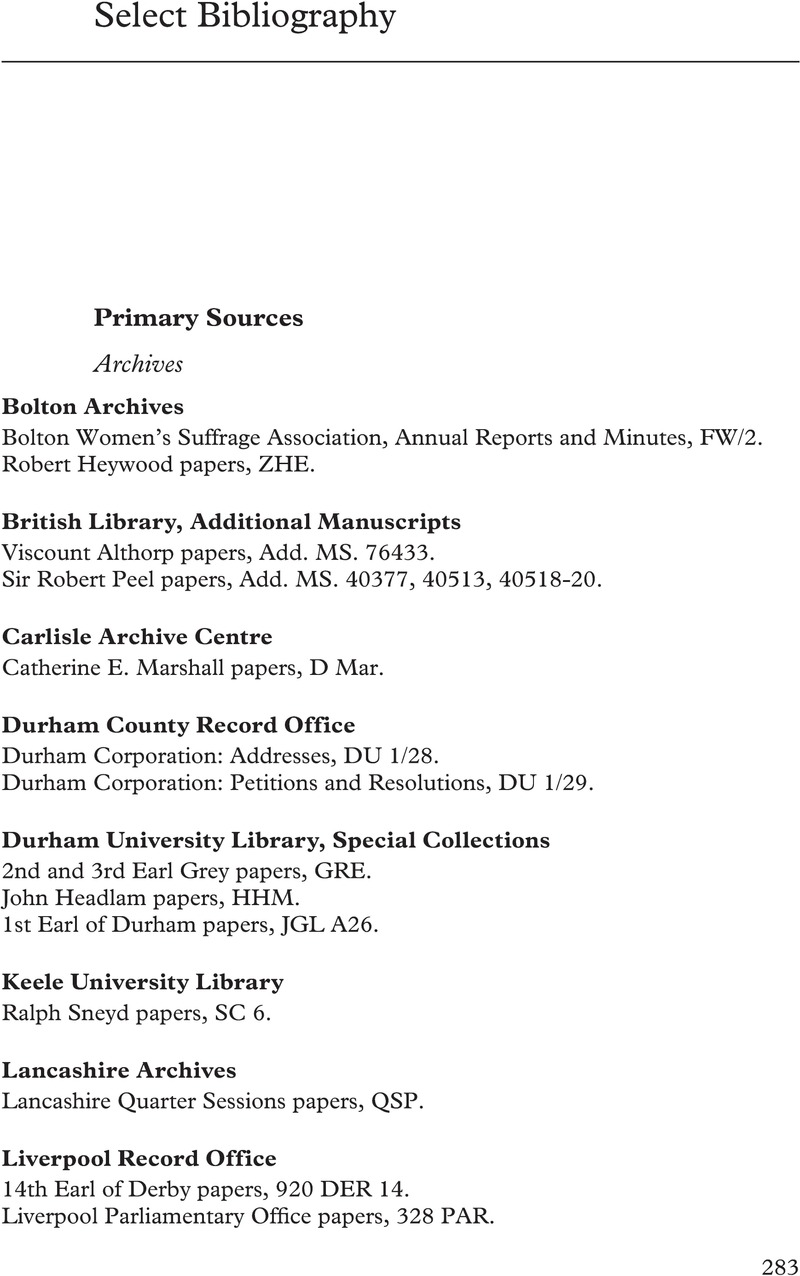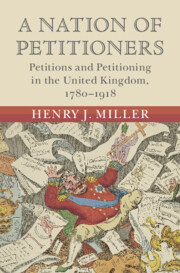Select Bibliography
Published online by Cambridge University Press: 02 February 2023
Summary

- Type
- Chapter
- Information
- A Nation of PetitionersPetitions and Petitioning in the United Kingdom, 1780–1918, pp. 283 - 293Publisher: Cambridge University PressPrint publication year: 2023



